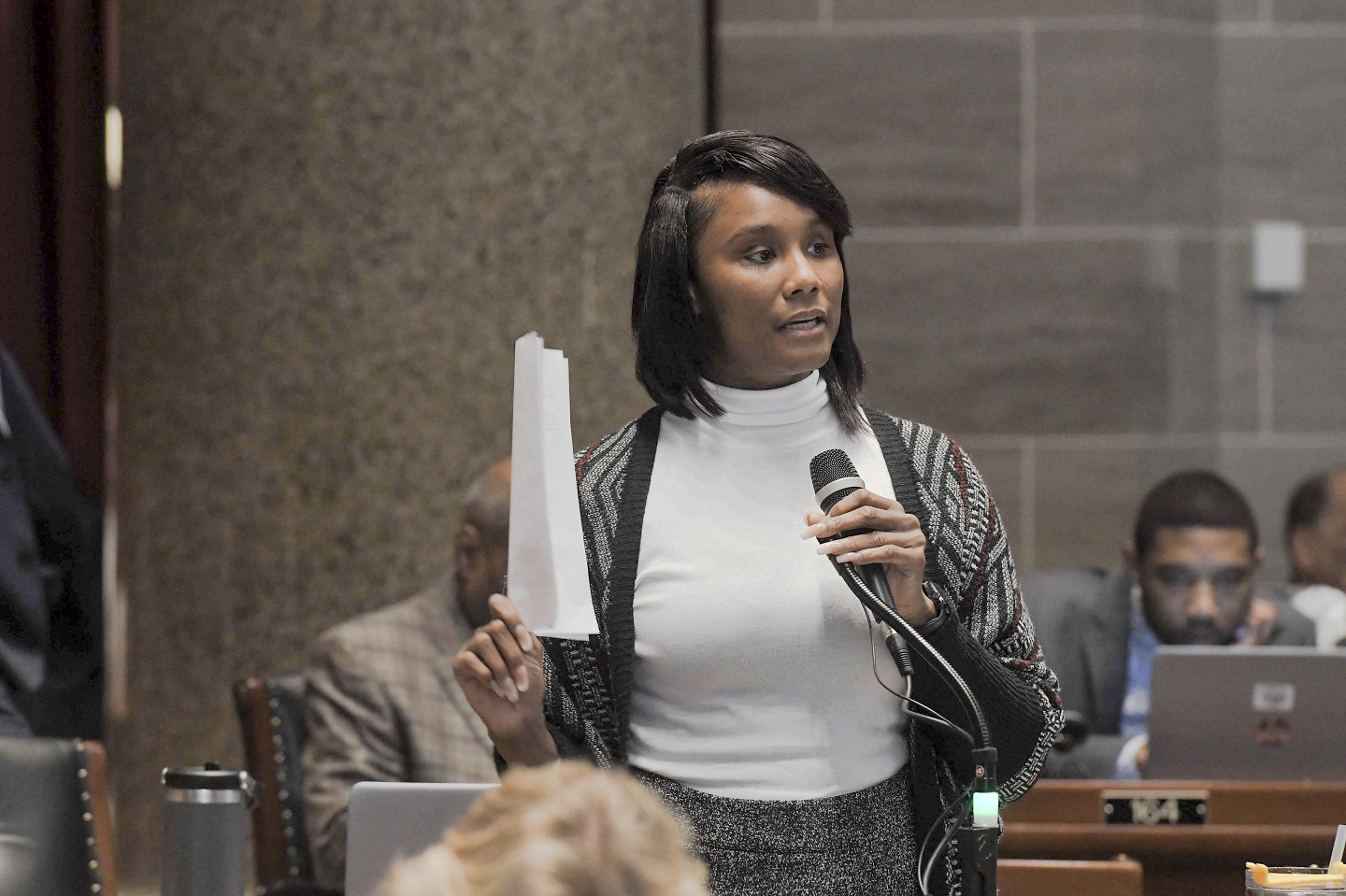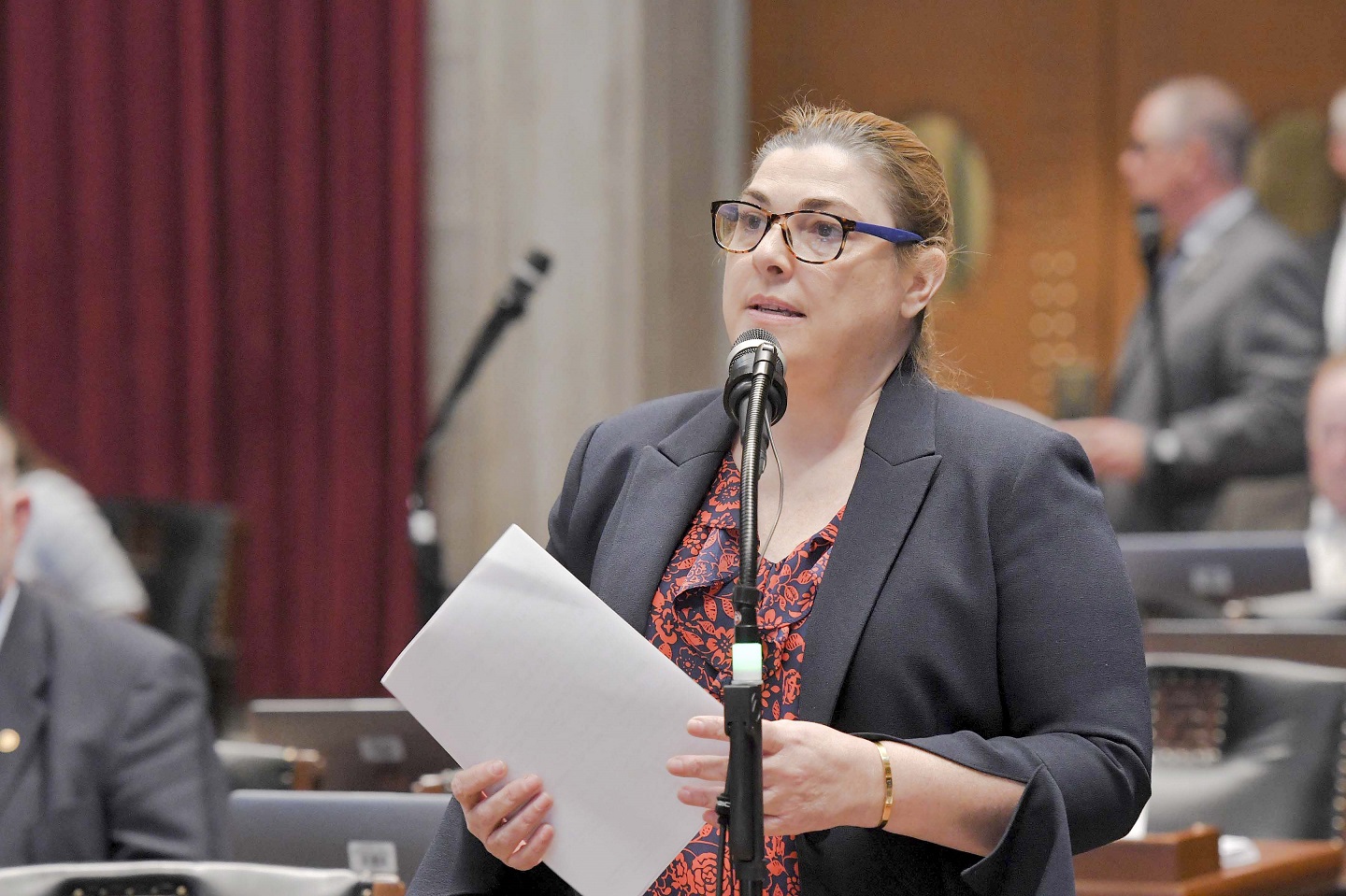A House bill passed this week aims to keep students who stand up to bullies in Missouri from being punished along with those bullies.
“Our goal is to make sure that a victim of violence, an immediate act of violence, isn’t automatically suspended from school for being involved. It also allows a teacher to act in good faith to help a victim of immediate violence,” said Representative Tricia Byrnes (R-St. Charles), the sponsor of House Bill 1715, the “Missouri Childhood Hero Act.”
Byrnes said the language is meant to, “address some of the bullying and violence that we have seen in our schools across the state, and quite honestly in schools across the country, and I’m very proud that [we], in a bipartisan fashion, have come together to stand up for kids.”
“This bill is very timely and it is appropriate,” said Representative Raychel Proudie (D-Ferguson). “I believe this bill prevents victims of bullying and physical violence from being victimized twice, both by the altercation and by being suspended pending investigation.”
The Act would require that public and charter schools have anti-bullying policies and that those policies meet certain requirements. It would restrict the use of “zero-tolerance” provisions that would punish a victim acting in self-defense, and require that administrators considering punishments consider a statement from any student who engaged in self-defense.
The bill specifies that a school employee or volunteer who intervenes in an incident of bullying or other violence is immune from liability when following certain procedures, and that a district or charter school is immune to civil liability for disciplinary actions if following specified procedures.
The bill would also extend school districts’ efforts to counsel and educate victims of bullying to those students who engage in bullying. That provision was added by Marshfield Representative John Black (R), the sponsor of House Bill 2630, which has been paired with HB 1715.
“As was mentioned in committee by one of the committee members, ‘hurt people hurt people.’ This tries to address the situation by addressing both the student being bullied and to try to get help to the student doing the bullying,” Black told his colleagues.
“As a teacher and school counselor myself, we are professionals, we are practitioners, and in as much, should have to answer for making sure that we are keeping eyes on children, and making and cultivating a safe learning environment for children,” said Proudie, who is a certified teacher and school counselor.

Regarding investigations, the legislation would shorten the time in which a district employee who witnesses a bullying incident must report it from two days to one, and require that the report be in writing.
Results of investigations would have to be presented to all involved students and include a description of any interventions, initiatives, techniques, or disciplines. In cases in which an investigation finds that bullying occurred the parents of the instigator must be notified. If the finding is that the incident rose to the level of 2nd degree harassment, law enforcement would be notified, or in cases involving a student younger than 11, the state Children’s Division would be notified.
“I think we’re all familiar with the scenario where two kids get into a fight and they’re both kicked out of school, and that’s what we’re trying to prevent, and I think that’s what this bill prevents,” said Representative Ian Mackey (D-St. Louis).
The House voted 150-0 to send that bill to the Senate.




